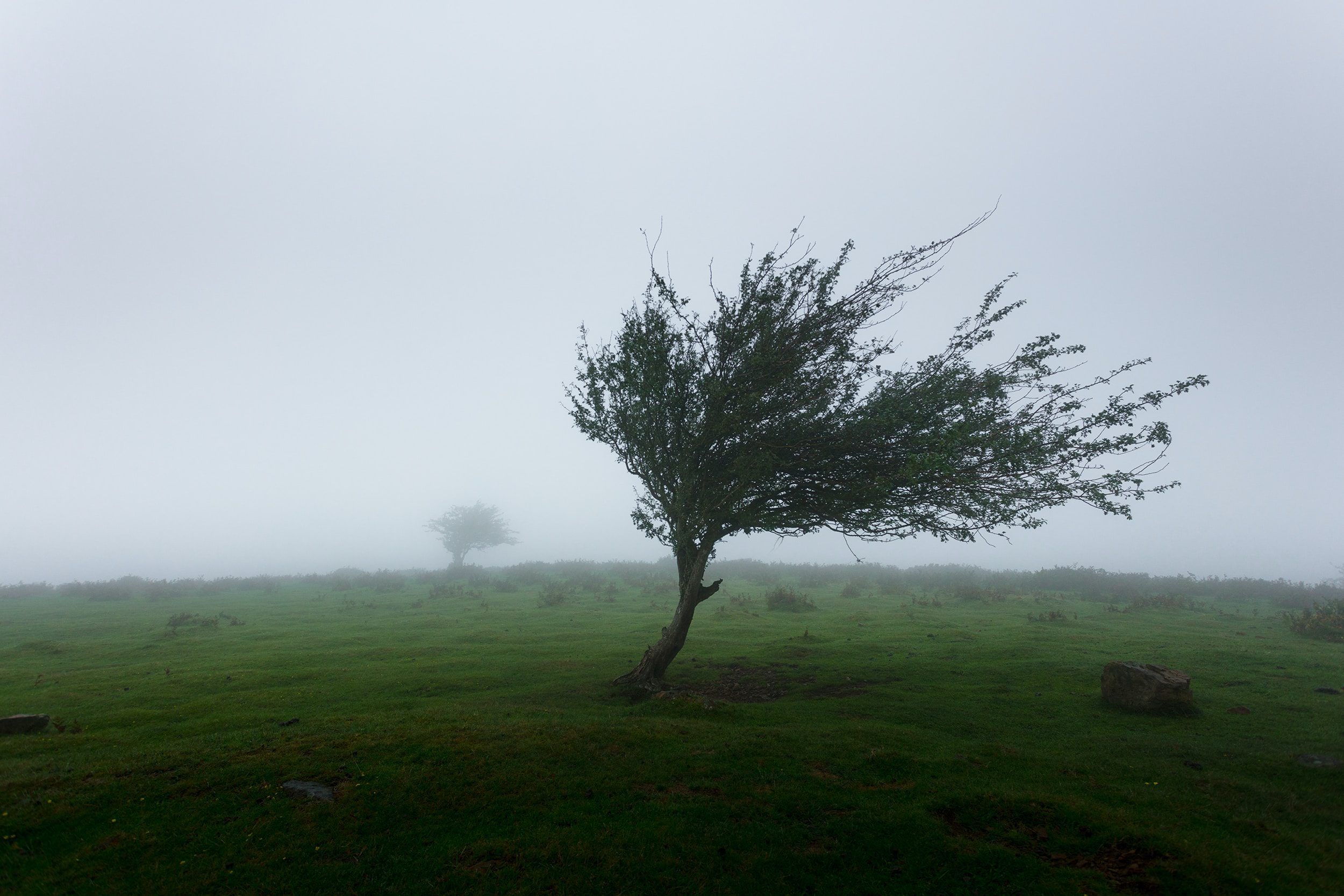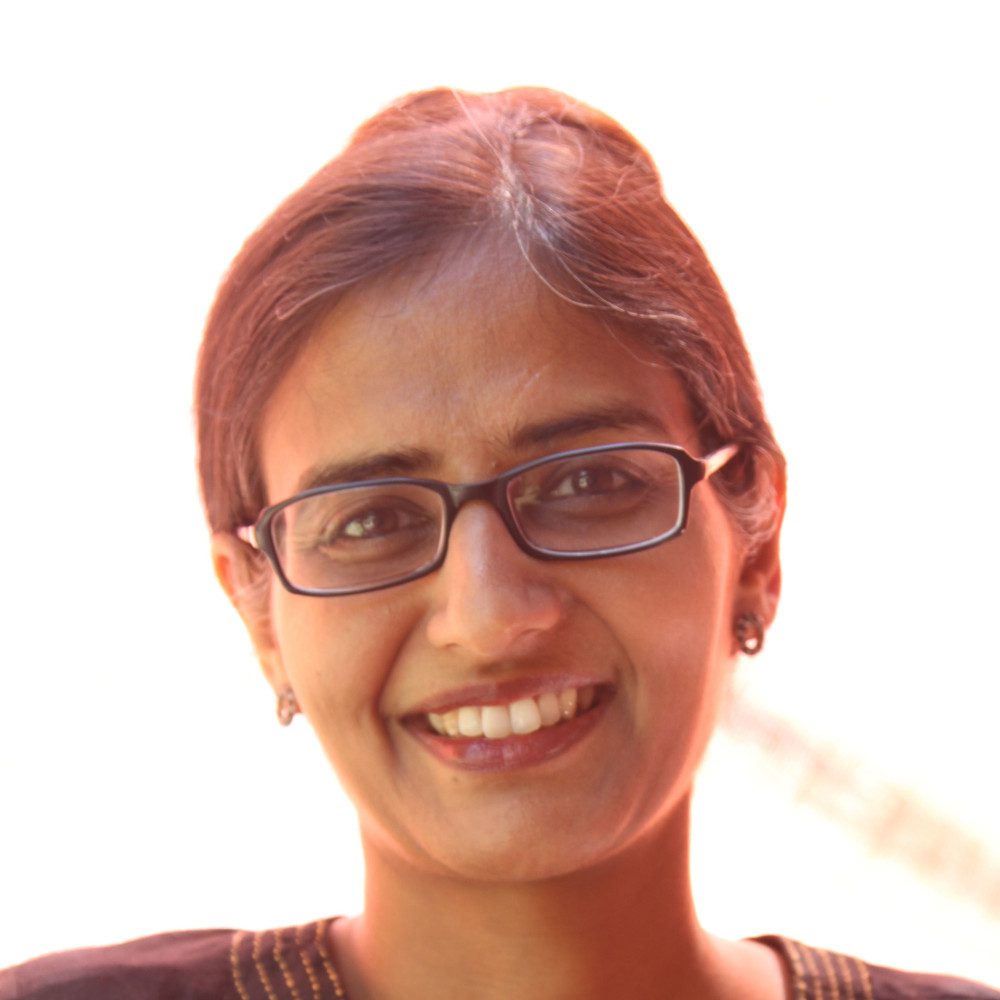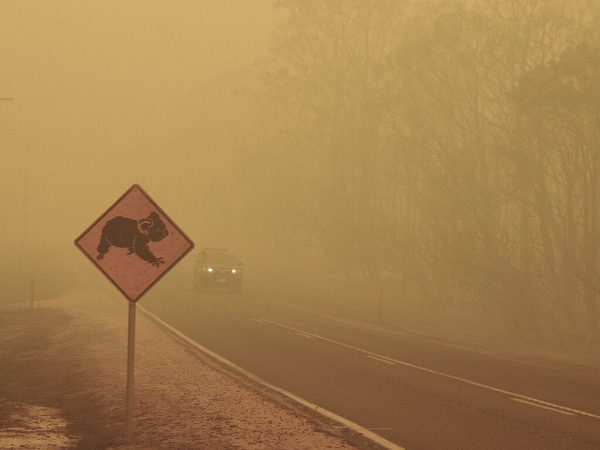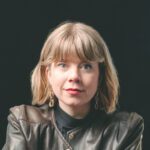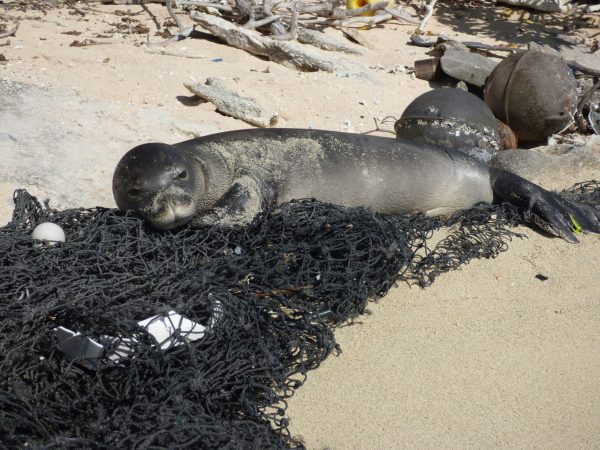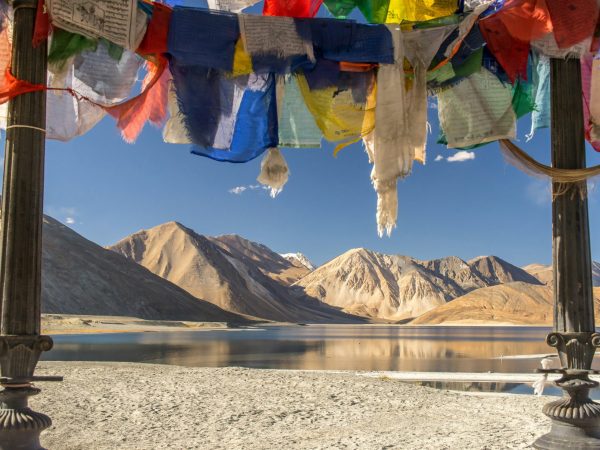When you think about the climate crisis, you might feel a swirl of sadness, anxiety, fear, anger, or even paralysis. Kritee Kanko wants to help people process and act from those feelings using an approach grounded in Buddhism.
Kanko is a climate scientist, activist, Zen priest, and meditation teacher. She tied all these roles together and founded Boundless in Motion, a nonprofit organization based in Boulder, Colorado. Boundless in Motion is organized around the three pillars of Ecodharma, a holistic framework that aims to strengthen the resilience and mindfulness of individuals, build wise communities, and take action for climate and racial justice.
Kanko works to bring the spiritual into the everyday sociopolitical realm and build a unified movement of informed Buddhist dharma through workshops, retreats, meditations, and grief rituals.
I spoke to Kanko because I’m seeking perspectives from different spiritual traditions on the journey of the human self and society in this time of climate crisis. What follows is a conversation about self-transformation through and into (but probably never out of) the climate feels, why this deeper work is essential to society-shifting and movement-building, and an invitation to the readers to begin this work themselves.
Yale Climate Connections: Tell me a bit about you and your how and why in founding Boundless in Motion.
Kritee Kanko: I grew up in the family of a Gandhian freedom fighter. My grandfather was a lawyer, left his practice, and jumped into the Indian freedom struggle to oppose the British Empire and fight for India’s political, social, and spiritual freedom. Gandhi’s understanding of political freedom was rooted in psycho-spiritual freedom, liberation at the deepest level. As I grew up, my grandfather instilled in me that if you have any ounce of privilege bestowed upon you, you do not sit and enjoy it, you use it to fight for justice.
I came to the U.S. to do a Ph.D. in computational biology, but when I arrived here I quickly became very depressed. I was missing my people, my culture, my way of being. I would walk into a mall or store and become depressed by seeing the material abundance when I knew there were so many people back home in India dying from lack of resources. I felt very bitter, alone, and isolated. I was totally dysfunctional for a semester or two. I did not have an inner equilibrium.
It will be violence to yourself to go and work in the movement when you are in need of rest and healing, but when you have capacity, it would be a shame to not go and fight on the front lines.
In this process, I decided environmental studies was much more suited to my overall quest in life. I found a great human being that mentored me through my graduate program, encouraged me to be patient, and take all the time to explore which topics I wanted to do research on. I started a meditation practice. Meditation helped me access a sacred inner pause to being controlled by the mind loops or thought tapes circulating in my head. I could not access creativity or courage when the same thought tapes were playing over and over again in my mind. I found a tool to stop the thoughts and emotions that overpowered me, and there, I found my ground. I started enjoying my Ph.D. program and continued to train with my root meditation teacher for almost 13 years.
My husband and I met in our environmental science graduate program, and after we finished our Ph.Ds, we moved to Boulder, Colorado. Settled there, we decided to start a mediation group but we were not satisfied doing meditation as an isolated practice for an individual. We wanted to encourage Buddhists to take climate actions together.
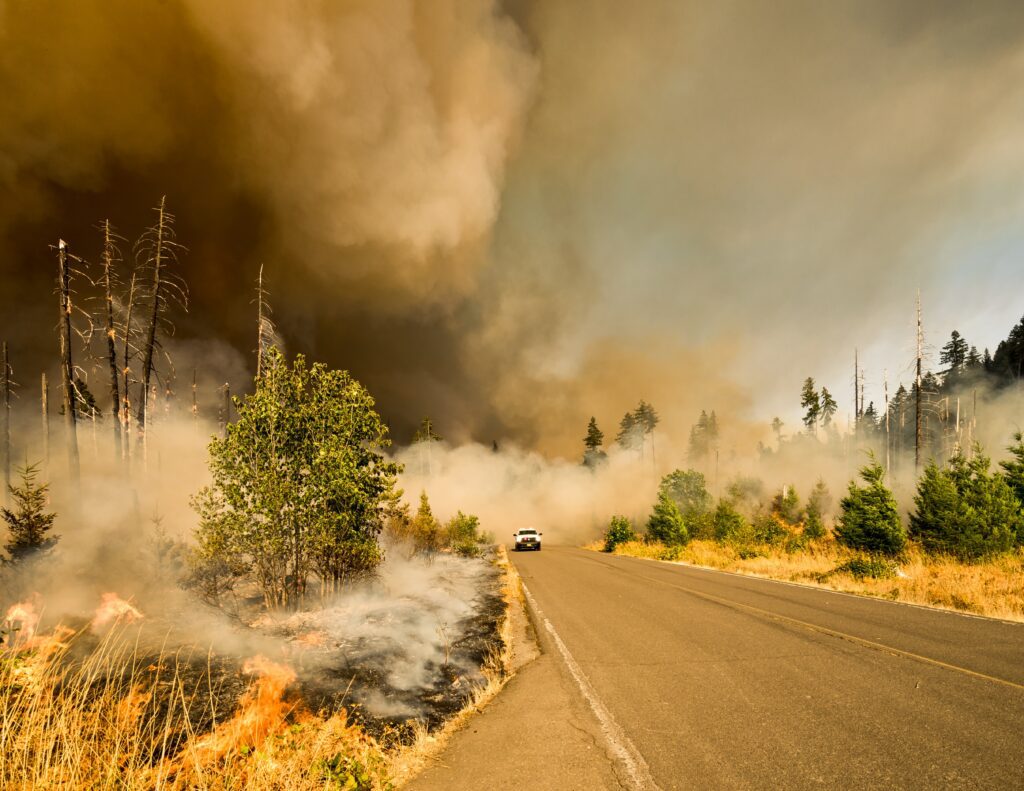
Yes, meditation helped me process my individual childhood trauma, but all the grief about the climate crisis and the great injustices of our time did not fully enter my practice when I was training with my root teacher. I was not connecting my healing to collective trauma healing, my liberation to collective liberation.
Then a magical thing happened: Joanna Macy came into town. We attended her grief ritual workshop, and we opened up about the grief of seeing ecosystems getting destroyed, sea level rise, typhoons, and wildfires. These rituals of grief processing opened up a portal inside of me, and I began to access these deep layers of grief about the climate crisis. I could feel how this grief was stuck in my nervous system, just as my childhood, teenage, and young adult trauma was trapped inside my body.
In neurobiology, when trauma is triggered, it sets the person off into fight, flight, freeze, fawn, or disassociate mode. The fundamental teaching of Buddhism is that some kind of human suffering and dissatisfaction is baked into human life. We cannot avoid suffering, but the question is, how can we become OK amidst stress and suffering? When we can face the intense emotions of the climate crisis without triggering a neurobiological response, that’s when we can become courageous, clear, grounded members of the climate or racial justice movement.
So out of this experience, we decided to start Boundless in Motion, in part, to help others “compost” the layers of their grief, including but not limited to climate grief, and become more grounded members of the movement. We also do other community-building activities and take collective actions in support of climate justice.
YCC: I agree pain and suffering are baked into the human experience, but I wonder about this tension between acceptance of this as a truth of life and acting to change our conditions. How do we both accept suffering and desire to change the social conditions that enable it?
Kanko: The tension comes up absolutely, all the time in my work — both at the level of the individual and the global climate movement.
Acceptance of suffering does not mean we prime the soil and sow the seeds for more suffering. There are times we must accept 1.5°C of warming and still do our very best to limit to 1.6, 1.7 degrees of warming. We must spend time and energy on mitigation but also adaptation. It’s a balance between resisting change and accepting change. There cannot be just one answer; it’s a sacred paradox, like the yin and the yang. To find this balance, we must be grounded in ourselves. The human predicament is asking us to do both, resist and accept, all the time.
Nature has built cycles of night and day. We eat and then our body takes time to digest food. There is a balance between cycles of rest and healing. This is a long-term fight, and we must be attuned to these cycles. It will be violence to yourself to go and work in the movement when you are in need of rest and healing, but when you have capacity, it would be a shame to not go and fight on the front lines. We need that collective flexibility, and that is where the role of community becomes so important. It cannot just be on the individual to keep fighting all their lives.
Grounding allows us to approach the grief, anger, and shame without fear you might drown in a bottomless pit.
We cannot keep acting, trying to mitigate the crisis and create social change, in a perpetual sense of urgency. This state of urgency drains the body, and it’s this state of urgency that says situations are black and white. In this state, our nervous system is triggered and our judgment is foggy. How the human body acts when its nervous system is grounded and triggered are two very different outcomes.
YCC: Can you tell me more about how you envision the role of community?
Kanko: You might begin your journey of healing and grounding alone, but I hope no one ends it alone. Find your tribe that shares your values, focused on inner healing of the spiritual and psychological system as well as outer change political change. There are people that are perfectly content in their yoga and meditation and never talk about social change. There are people who will fight and fight and fight and never stop, slow down, and see their own inner tendencies of aggression, arrogance, or acting from a place of groundlessness. I need a tribe that will tell me if I am in fight or flight mode. I need a tribe that will remind me to take a rest, invite me to dance or meditate or listen to some good music, to ask for the blessings of our ancestors, or help me surrender humbly to whatever is happening. I need a tribe that will take part in this joy and relaxation and then start up a project for the movement again.
We all have to find practices that work for us. There is no single way of healing. Try meditation. I always tell people, try singing, try dance. Singing from the lower belly and movement helps release stress and trauma. Our ancestors had circles of singing and drumming and shaking and swaying. There are healing strategies built into these practices. We have to find healing strategies that resonate for us, and hopefully, we can do it with our tribes.
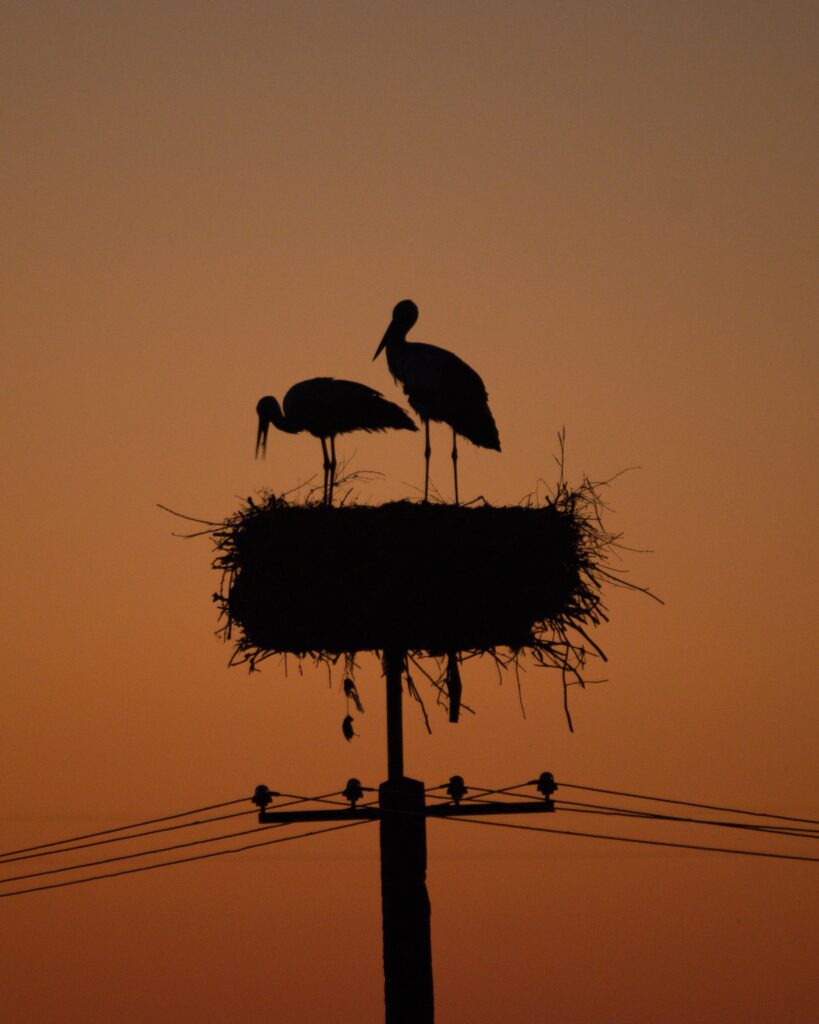
YCC: We’ve talked about the self and the community, but I’m curious to hear about your wildest dreams of how climate grief and healing might happen at a societal level.
Kanko: I’m a big fan of group-level grief work. With skilled facilitators, it is emotionally resonant and liberating. It’s liberating to be able to access and speak our truths. We are told so often to be enthusiastic and energetic in our job, in the world, in graduate school, but oftentimes there is a deep sadness we do not speak about. The group grief work is so liberating, so freeing for people. I’ve actually seen a change in the tone of people’s skin after these rituals because the tension we subconsciously hold in our skin is released.
A lot of self-help books say: think positively. You might think if I feel grief and anxiety, fear, or anger, there is something wrong with me. You might think I’m not spiritual enough, I’m not a good student of Christ or a good follower of Buddha. All religions have a kind of teaching that says if you feel anger, fear, anxiety, or grief there is something wrong and you need more spiritual practice. It’s liberating to have spaces where we say: This is holy grief, this is holy anger. If I grieve, it is because I love. If I feel anger, it is because I care for justice. In the group ceremonies, we see the sacredness of these emotions.
These rituals done with your tribe deepen your friendships and create a sense of camaraderie. In silent meditation, you are processing grief, but doing it alone. When you speak it, another layer of bonding is possible. Then when you take actions together, you are not ridden by guilt and shame and carrying this burden just within yourself. The energy we spend on bottling our emotions, we can devote to the movement.
So what if we scaled up to the societal level? What if we had collective grief rituals in all major cities of this country?
I have a friend, Zhiwa Woodbury, who is a big proponent of Truth and Reconciliation models. What if we did collective grief rituals for oppressed Indigenous folk separately, Black folk separately, white folk separately, and then brought them together in a Truth and Reconciliation mode? Let people do their own work first, be in their own trauma, guilt, maybe their shame, and then bring them together for that healing.
That could really build our power.
YCC: In reading on Boundless in Motion, the organizational philosophy is rooted in the idea of interlocked systems of oppression. Can you speak more to why this is important?
Kanko: The mainstream climate movement is still pretty white, like a very white room inviting Black and Brown folks to walk in. There has been progress over the last four or five years, especially after George Floyd’s tragic passing and the uprisings in response. But still, the mainstream climate movement does not have a good understanding of the causes of the climate crisis as rooted in colonialism and white supremacy. For me, that is a huge piece. When we do our inner work, that increases our capacity to see these connections between different movements. White folks keep saying, let’s take care of climate first and then we’ll take care of justice later. If we don’t get to the root of the problem, this is like rearranging chairs on the deck of the Titanic. White supremacy is the mother of the climate crisis. To see this truth clearly is to work to erode white supremacy, not just trying to pass another bill so we can all get heat pumps. Heat pumps are great, I do not mean this to say work against them. I’m saying the depth to the radical nature of our work in the climate movement depends on the extent to which we have done our emotional, psychological, and spiritual work. This work increases our capacity to get to the root cause of our current predicament.
It’s liberating to have spaces where we say: This is holy grief, this is holy anger. If I grieve, it is because I love. If I feel anger, it is because I care for justice.
YCC: For a reader who is curious how to confront more than just the scientific truth, but the spiritual and psychological truth, and feels ready to embark on this journey themselves, where do you suggest they start?
Kanko: We have a million to-do tasks. Our phones are pinging all the time, we have this Netflix show to watch, or this gathering to attend, or this work to do for the climate movement. To begin our journey of emotional, spiritual, psychological healing, we have to slow down, stop, and get grounded. Try to access your feelings, try to access what your body feels. Ask yourself, how do I feel and where do I feel this in my body?
Meditation is like magic because the technique gives us the capability to ground ourselves. Without grounding, it’s possible to remain completely scared of our emotions. Grounding allows us to approach the grief, anger, and shame without fear you might drown in a bottomless pit. My friend, Kaira Jewel Lingo, with whom I colead people of color retreats, talks about this as an infinity symbol: one loop as inner work with the self, the other as outer work with the tribe, back and forth between the two. So go to your meditation or journal and access your feelings, and then go to your community to process and act together. Get grounded in yourself and then stay grounded with your tribe.
This article originally appeared in Yale Climate Connections. It is shared here under Creative Commons: Attribution-Noncommercial-No Derivative Works.
